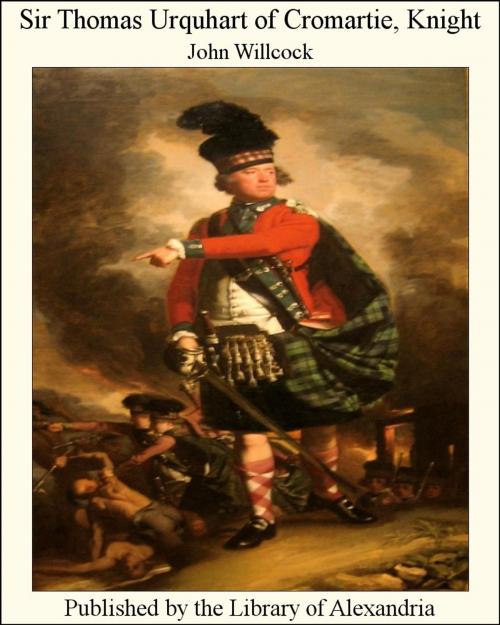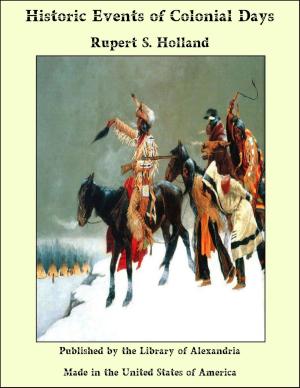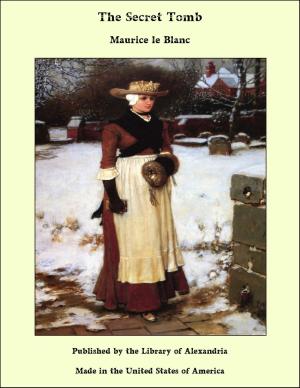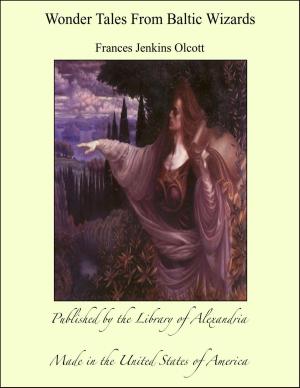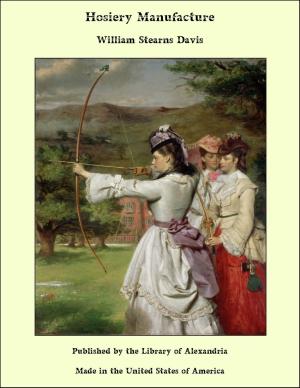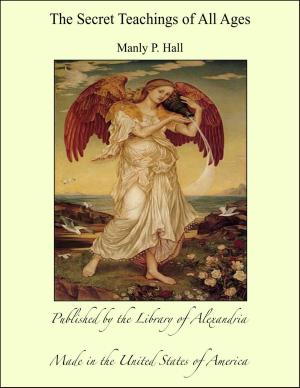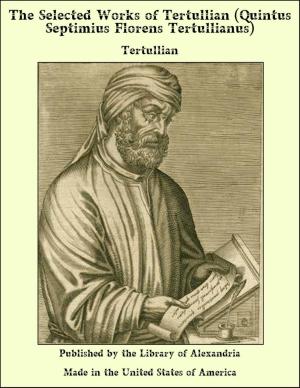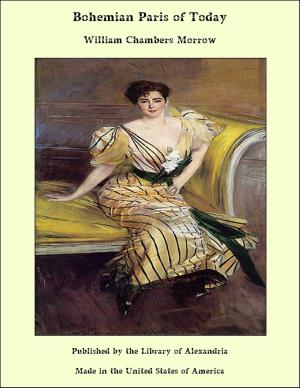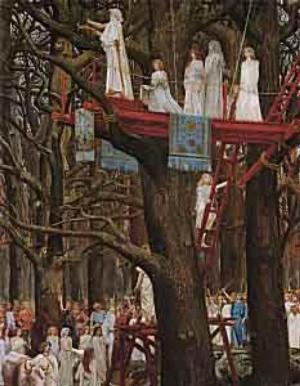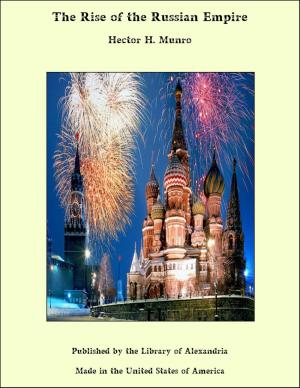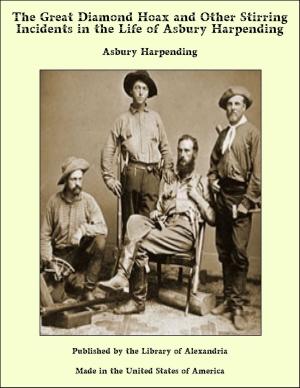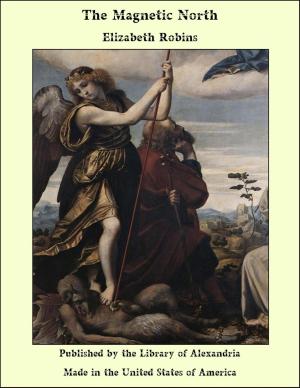Sir Thomas Urquhart of Cromartie, Knight
Nonfiction, Religion & Spirituality, New Age, History, Fiction & Literature| Author: | John Willcock | ISBN: | 9781465518491 |
| Publisher: | Library of Alexandria | Publication: | March 8, 2015 |
| Imprint: | Language: | English |
| Author: | John Willcock |
| ISBN: | 9781465518491 |
| Publisher: | Library of Alexandria |
| Publication: | March 8, 2015 |
| Imprint: | |
| Language: | English |
The Urquharts and their Predecessors in Cromartie—Sir Thomas Urquhart, senior—Birth of our —School and University Days—Pecuniary and Other Troubles at Home—The Castle of Cromartie—Our 's Studious Bent—Foreign Travel—The Englishman Abroad—The Scot Abroad. HE right of Sir Thomas Urquhart of Cromartie to be included in the list of famous Scots will scarcely be granted by many of his fellow-countrymen without some inquiry into the grounds upon which it is based. He himself, undoubtedly, would not have been backward in asserting his claim to such honourable distinction, though he would have entered a protest against the presence of some of those in whose company he would find himself. In the ecclesiastical and political controversies of the first half of the seventeenth century, he was, as an Episcopalian and a Cavalier, connected with the losing side, and, consequently, it is not to be expected that posterity should be so impartial as to cherish his name along with those of the victors in the conflict. It is to his literary, and not to his martial achievements, that he owes his fame. His translation of Rabelais is probably the most brilliant feat of the kind ever accomplished, and casts all his own original writings into the shade. The fantastical character of his own compositions, indeed, both in regard to their subject-matter and the diction in which they are clothed, forbids their ever having a large circle of readers. An author whose phraseology is like a combination of that used by Ancient Pistol with that of Sir Thomas Browne may have enthusiastic admirers, but they are almost certain to be few in number. Yet his works contain much interesting matter, and to them we are indebted for many details of the life of their author. Though it is hard to believe Sir Thomas Urquhart's assertion that the connexion of the Urquharts with the north-west of Scotland dates as far back as the year B.C. 554, when an ancestor of his named Beltistos crossed over from Ireland, and built a castle near Inverness, the family was of considerable antiquity, and for many generations was one of the most distinguished in that part of the country. Nisbet, the great authority on heraldry, says that "they enjoyed not only the honourable office of hereditary Sheriff-Principal of the Shire of Cromartie, but the far greater part, if not the whole of the said shire did belong to them, either in property or superiority, and they possessed a considerable estate besides in the Shire of Aberdeen." The admiralty of the seas from Caithness to Inverness also belonged to them. The Urquharts were not, however, the earliest to bear rule in the part of Scotland with which their name is connected. Cromartie was originally the Crwmbawchty (or Crumbathy) of which Macbeth was reputed thane, before he became king. Wyntown in his Cronykil relates Macbeth's dream that he was first Thane of Cromartie, then Thane of Moray, and then King of Scotland. After the first and second titles had been conferred upon him, he took steps to secure the third. Probably the mote-hill of Cromartie was the site of his official residence as thane of the district when he was at the beginning of his ambitious career
The Urquharts and their Predecessors in Cromartie—Sir Thomas Urquhart, senior—Birth of our —School and University Days—Pecuniary and Other Troubles at Home—The Castle of Cromartie—Our 's Studious Bent—Foreign Travel—The Englishman Abroad—The Scot Abroad. HE right of Sir Thomas Urquhart of Cromartie to be included in the list of famous Scots will scarcely be granted by many of his fellow-countrymen without some inquiry into the grounds upon which it is based. He himself, undoubtedly, would not have been backward in asserting his claim to such honourable distinction, though he would have entered a protest against the presence of some of those in whose company he would find himself. In the ecclesiastical and political controversies of the first half of the seventeenth century, he was, as an Episcopalian and a Cavalier, connected with the losing side, and, consequently, it is not to be expected that posterity should be so impartial as to cherish his name along with those of the victors in the conflict. It is to his literary, and not to his martial achievements, that he owes his fame. His translation of Rabelais is probably the most brilliant feat of the kind ever accomplished, and casts all his own original writings into the shade. The fantastical character of his own compositions, indeed, both in regard to their subject-matter and the diction in which they are clothed, forbids their ever having a large circle of readers. An author whose phraseology is like a combination of that used by Ancient Pistol with that of Sir Thomas Browne may have enthusiastic admirers, but they are almost certain to be few in number. Yet his works contain much interesting matter, and to them we are indebted for many details of the life of their author. Though it is hard to believe Sir Thomas Urquhart's assertion that the connexion of the Urquharts with the north-west of Scotland dates as far back as the year B.C. 554, when an ancestor of his named Beltistos crossed over from Ireland, and built a castle near Inverness, the family was of considerable antiquity, and for many generations was one of the most distinguished in that part of the country. Nisbet, the great authority on heraldry, says that "they enjoyed not only the honourable office of hereditary Sheriff-Principal of the Shire of Cromartie, but the far greater part, if not the whole of the said shire did belong to them, either in property or superiority, and they possessed a considerable estate besides in the Shire of Aberdeen." The admiralty of the seas from Caithness to Inverness also belonged to them. The Urquharts were not, however, the earliest to bear rule in the part of Scotland with which their name is connected. Cromartie was originally the Crwmbawchty (or Crumbathy) of which Macbeth was reputed thane, before he became king. Wyntown in his Cronykil relates Macbeth's dream that he was first Thane of Cromartie, then Thane of Moray, and then King of Scotland. After the first and second titles had been conferred upon him, he took steps to secure the third. Probably the mote-hill of Cromartie was the site of his official residence as thane of the district when he was at the beginning of his ambitious career
